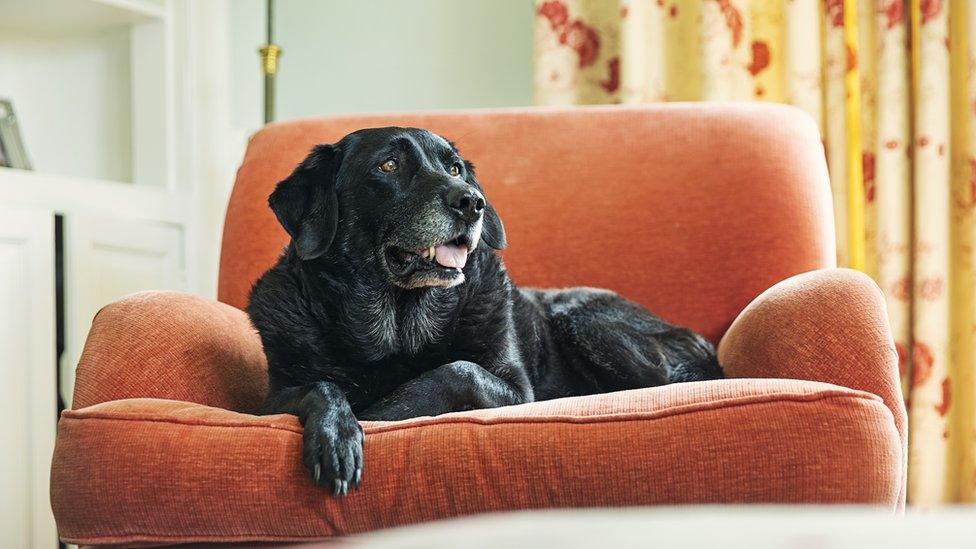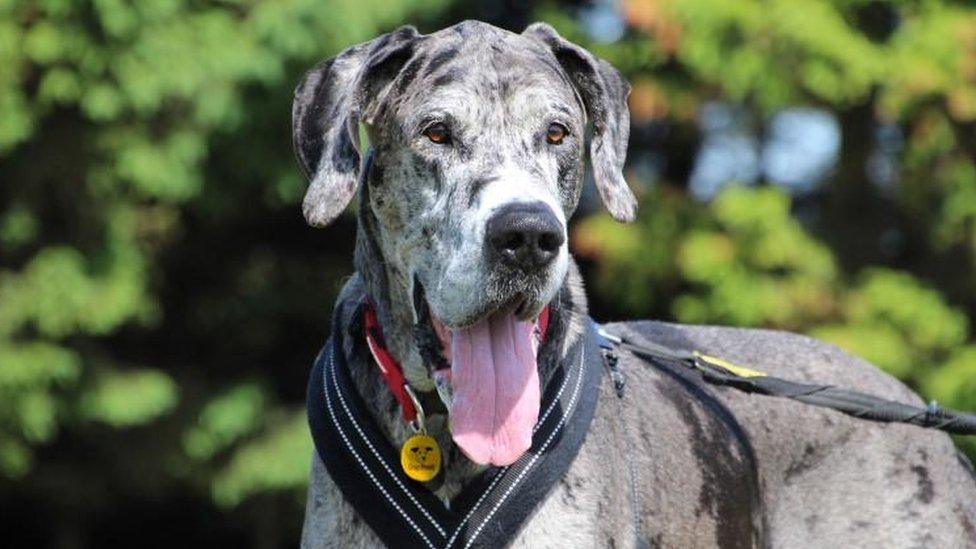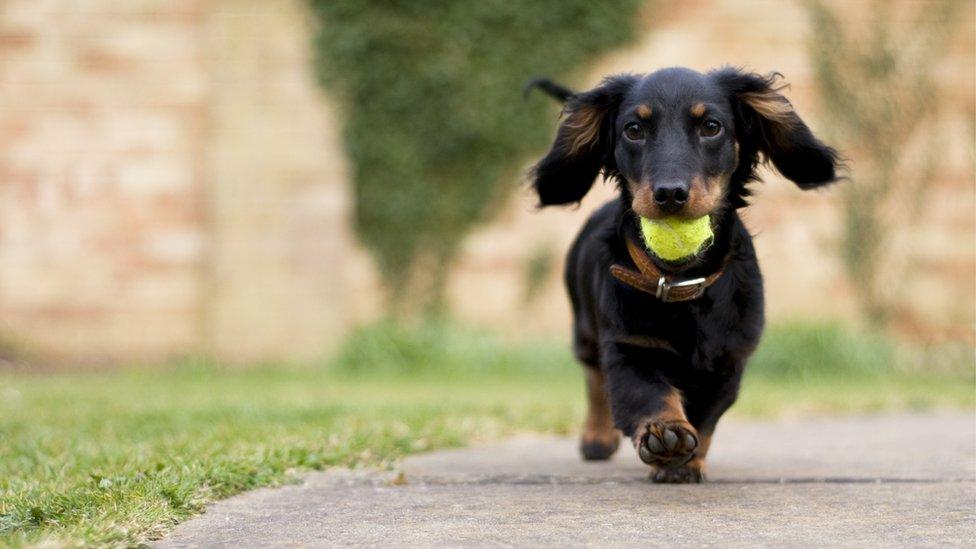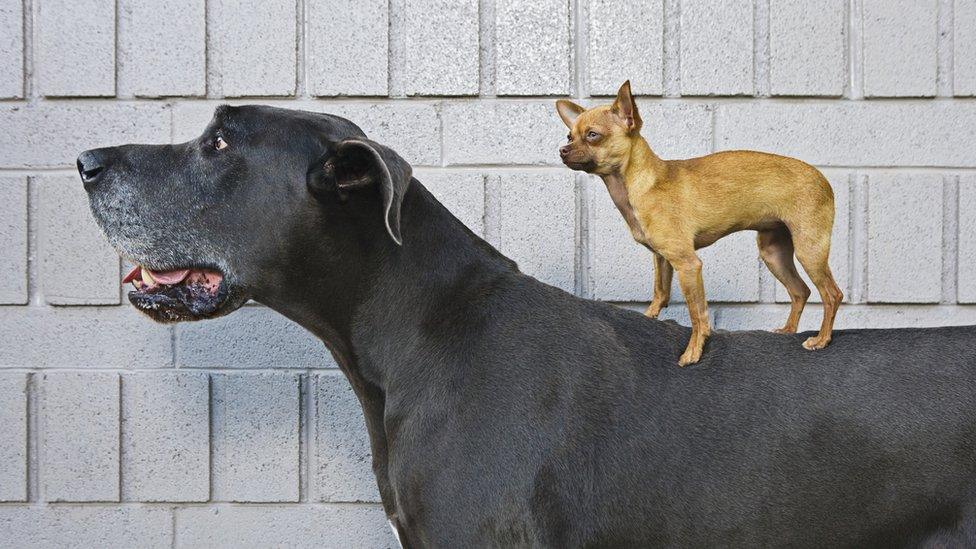Dog years: Nottingham expert casts doubt over age calculation
- Published

Dr Naomi Harvey said some dogs that appear old are mentally "still in their prime"
Dog owners who think of one human year being worth seven dog years could be barking up the wrong tree, an animal expert has warned.
Dr Naomi Harvey, a zoologist at the University of Nottingham, has been examining how dogs have traditionally been categorised by age.
She found most groupings were based on a dog's health and physical ability.
She has called for a greater focus on behavioural development as it is more consistent among different breeds.
Dr Harvey, who is also research manager for the Dogs Trust charity, said our furry companions were often not at the life stage owners assumed.
"Many one-year-old dogs have reached their full height and most will have gone through puberty or be approaching the end of it, so they're definitely not the equivalent of a seven-year-old child," she said.
In the same way, she said many dogs are not "old" even when approaching their maximum life expectancy.
"Whilst a dog that has a shorter life span might be physically aging - deteriorating faster - it's not a true form of aging," she said.
This is something she believes dog owners should be aware of - especially with large breeds.

Many dogs have reached their full size and gone through puberty when they reach the age of one
Great Danes, for example, only have an average life expectancy of six years in the UK.
Dr Harvey said: "While they might appear old and their body might be that of an older dog, in their mind they're still in their prime.
"You've still got a young dog that is still going to want to be stimulated and kept active.
"You can't maybe take them for big walks anymore, you can't throw balls for them to run, but there are a lot of other things people can do to support their dogs' quality of life when their bodies are aging."

Dr Harvey said a dog could still be considered "juvenile" at the age of one
Dr Harvey embarked on the study to see if there were consistent age categories that dogs could be grouped in.
When it comes to grouping, Dr Harvey said "everybody does it differently".
She wants a standard grouping to be adopted based on biological underpinnings of their development.
In her review, she paws-itively concluded that there was evidence to suggest a one-year-old dog was still juvenile, just coming out from puberty.
At two, they are at the end of adolescence and have become mature adults - the equivalent of a 25-year-old human.
She found that dogs can be considered to be entering their senior years at age seven, and that they can be classified as geriatric at the age of 12 and over.
Dr Harvey is not the first animal expert to urge a rethink on how dogs grow old.
In 2019, researchers at the University of California in San Diego compared human and dog DNA to come up with a formula for converting dog years to human years.

Follow BBC East Midlands on Facebook, external, Twitter, external, or Instagram, external. Send your story ideas to eastmidsnews@bbc.co.uk, external.
Related topics
- Published20 April 2021

- Published29 October 2020

- Published20 November 2019

- Published10 May 2013
